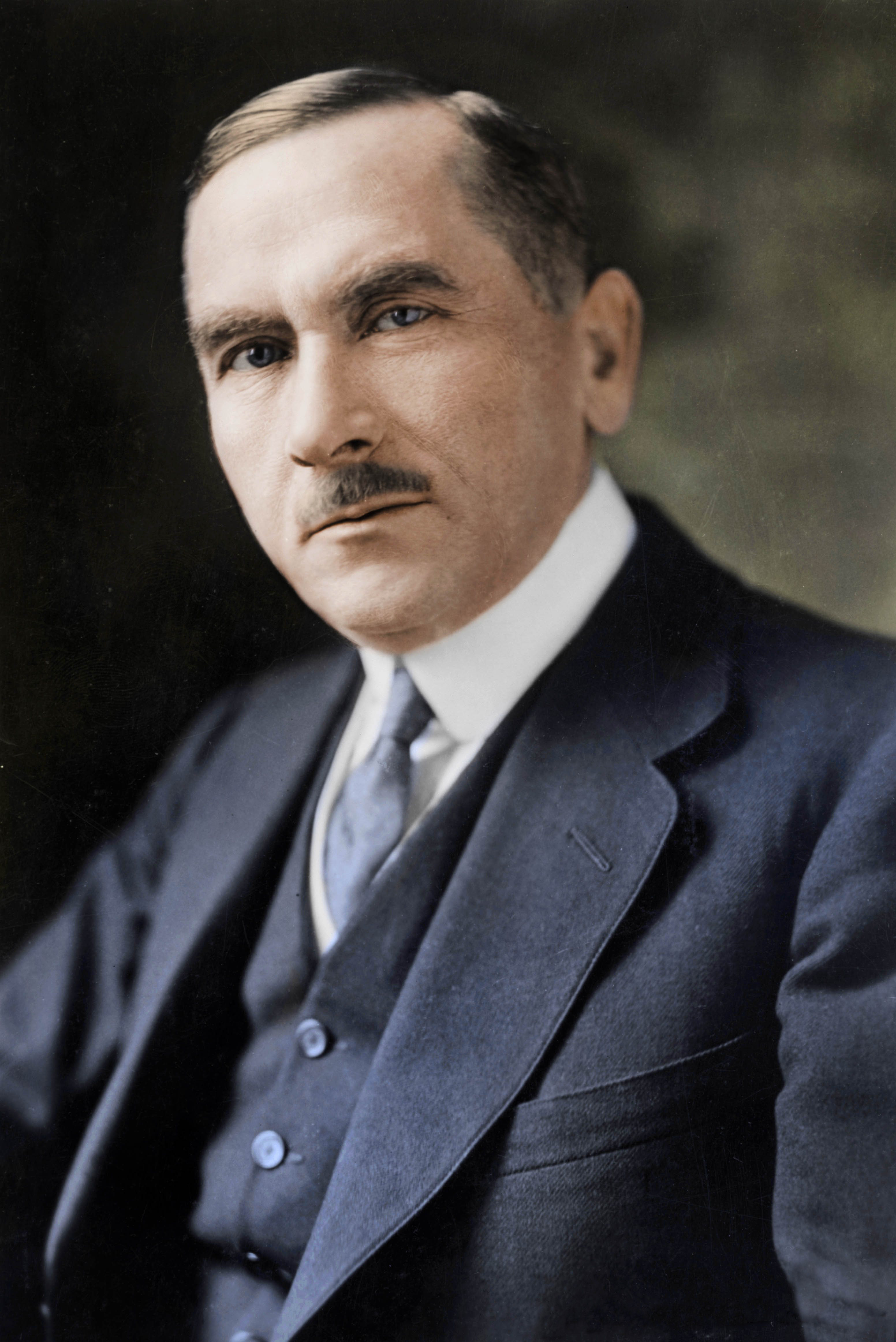Roman Stanisław Dmowski [ˈrɔman staˈɲiswaf ˈdmɔfski] was a Polish politician, statesman, and co-founder and chief ideologue of the right-wing National Democracy political movement. He saw the aggressive Germanization of Polish territories controlled by the German Empire as the major threat to Polish culture and therefore advocated a degree of accommodation with another power that had partitioned Poland, the Russian Empire. He favored the re-establishment of Polish independence by nonviolent means, and supported policies favorable to the Polish middle class. During World War I, in Paris, through his Polish National Committee he was a prominent spokesman, to the Allies, for Polish aspirations. He was a principal figure instrumental in the postwar restoration of Poland's independent existence.
Dmowski never wielded official political power, except for a brief period in 1923 as minister of foreign affairs. Nevertheless, he was one of the most influential Polish ideologues and politicians of his time. A controversial personality all his life and since, Dmowski believed that only an ethnic Polish-speaking and Roman Catholic could be a good Pole; his thinking marginalized other ethnic minority groups living in Poland, and he was vocally anti-semitic. He remains a prototype of Polish nationalism and has been hailed as "the father of Polish nationalism". Throughout most of his life, he was the chief ideological opponent of the Polish military and political leader Józef Piłsudski and of the latter's vision of Poland as a multinational federation against German and Russian imperialism.
✵
9. August 1864 – 2. January 1939
